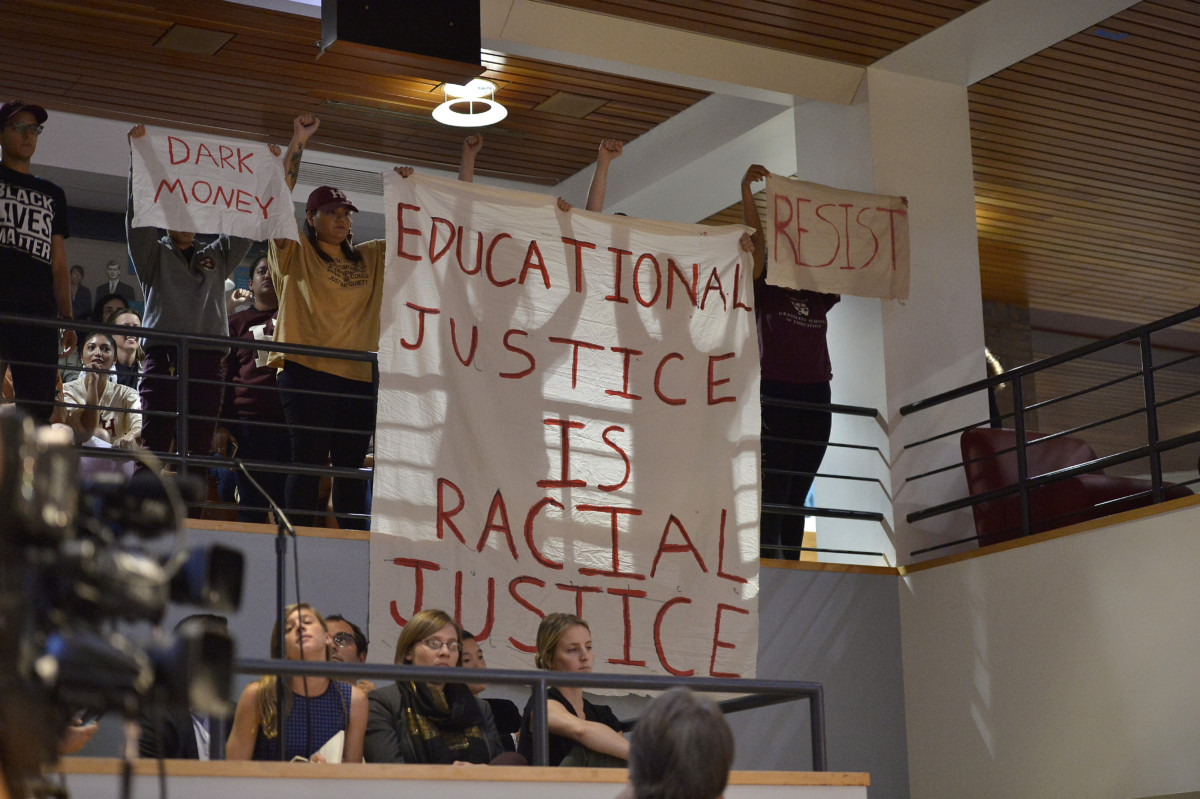Weeks after civil rights advocates began receiving notifications from the Department of Education that their cases regarding discrimination in schools were being dismissed, three national groups filed a lawsuit Thursday arguing that the department’s new complaint guidelines are undermining its own obligation to investigate civil rights violations.
“You don’t have be an attorney to know these revisions are unlawful,” Marcie Lipsitt, a disability rights advocate, told Education Week. “They go against the [Office for Civil Rights’] mission statement. “These provisions strip every American of their civil rights and their ability to file civil rights complaints. And the beauty of civil rights complaints has been that everyone has been able to file one.”
Claiming that civil rights complaints can place an “unreasonable burden” on its Office for Civil Rights (OCR), Education Secretary Betsy DeVos as revised the department’s procedures. The new guidelines allow officials to dismiss hundreds of complaints regarding unfair treatment of students of color, inadequate resources for students with disabilities, and other forms of systemic discrimination. The appeals process for resolutions has also being eliminated.
The NAACP, the National Federation of the Blind, and the Council of Parent Attorneys and Advocates argue that the changes are unlawful and have asked a judge to block the department from enforcing the new guidelines.
Filing complaints with the DOE has been “one way, sometimes the only way, for vulnerable people who can’t afford to litigate, to get their cases heard, and that’s being taken away,” Eve Hill, the plaintiff’s lawyer, told the New York Times.
The new policy will allow the dismissal of cases that fit a “pattern” of multiple complaints filed by individuals or advocacy groups.
For example, Lipsitt — who has been labeled a “frequent flier” by the department — has successfully reached more than 1,000 agreements with schools in which the institutions have agreed to make their websites accessible to people who are deaf or blind. About 500 of Lipsitt’s new complaints have been dismissed, the Times reported.
“No one even knew about this issue until I started filing,” Ms. Lipsitt told the Times last month after the DOE introduced its new procedures. “I didn’t want to get anybody in trouble. I just wanted to raise awareness.”
Joey Poirier, a special education advocate who’s filed dozens of civil rights complaints against school districts in Florida, has also been notified that 10 of his open cases have been closed due to the new procedure.
“These weren’t fraudulent, bogus complaints — these were all complaints that were legitimate,” Poirier told the74million.org, an education news website. “I guess we have selective civil rights in the United States now.”
Our most important fundraising appeal of the year
December is the most critical time of year for Truthout, because our nonprofit news is funded almost entirely by individual donations from readers like you. So before you navigate away, we ask that you take just a second to support Truthout with a tax-deductible donation.
This year is a little different. We are up against a far-reaching, wide-scale attack on press freedom coming from the Trump administration. 2025 was a year of frightening censorship, news industry corporate consolidation, and worsening financial conditions for progressive nonprofits across the board.
We can only resist Trump’s agenda by cultivating a strong base of support. The right-wing mediasphere is funded comfortably by billionaire owners and venture capitalist philanthropists. At Truthout, we have you.
We’ve set an ambitious target for our year-end campaign — a goal of $250,000 to keep up our fight against authoritarianism in 2026. Please take a meaningful action in this fight: make a one-time or monthly donation to Truthout before December 31. If you have the means, please dig deep.
